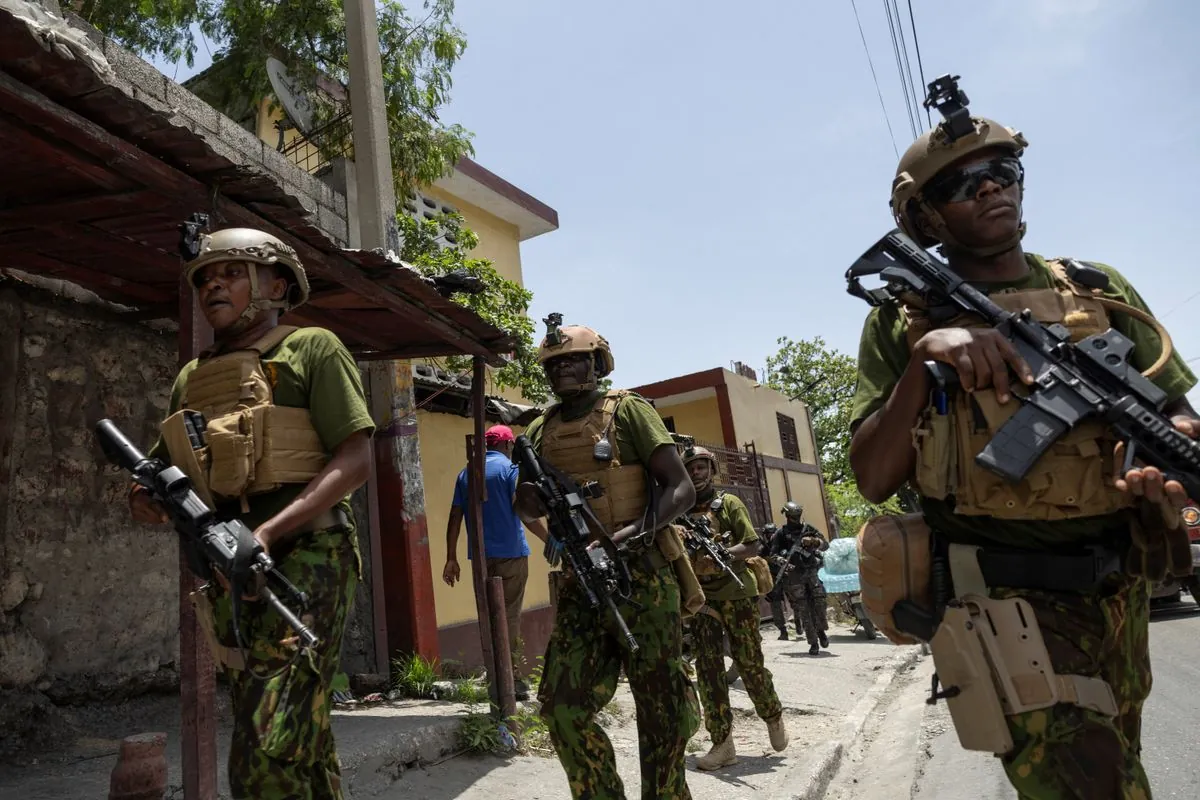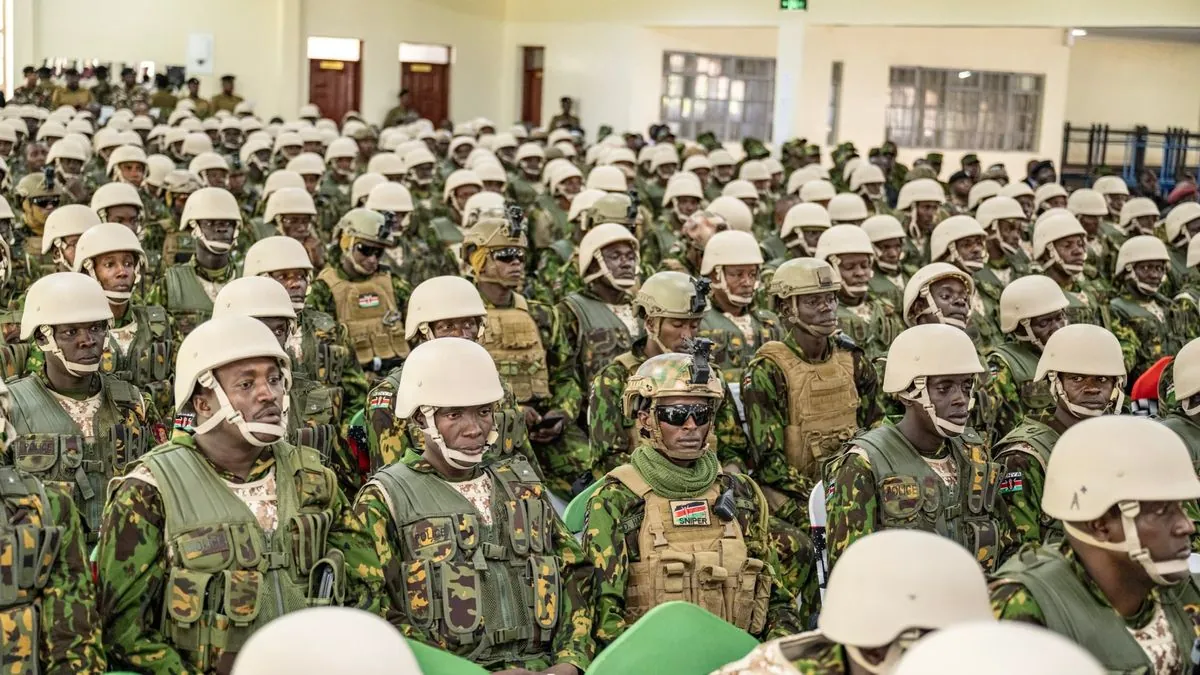Kenyan Police in Haiti Face Equipment and Pay Challenges
Kenyan officers deployed to Haiti report equipment shortages and pay issues, hampering efforts to confront gangs. The UN-backed mission aims to restore security for 2026 elections but faces funding gaps.

The Multinational Security Support (MSS) mission in Haiti, led by Kenyan police officers, is encountering significant obstacles in its efforts to restore security and pave the way for elections by February 2026. The mission, authorized by the UN Security Council in October 2023, has been plagued by equipment shortages, manpower issues, and funding gaps, according to reports from officers on the ground.
The first contingent of nearly 200 Kenyan officers arrived in Port-au-Prince in late June 2024, followed by a similar-sized group three weeks later. The force is intended to grow to approximately 2,500 personnel from at least 10 countries. However, progress has been slow, partly due to financial constraints. Despite a $369 million contribution from the United States in money, equipment, and services, the UN fund remains over $150 million short of the estimated $589 million required for the first year's operations.

Four Kenyan officers, speaking anonymously, reported inadequate resources for confronting heavily armed gangs that control most of Port-au-Prince. They described taking heavy fire from gunmen positioned in tall buildings, with limited ability to respond due to a lack of armoured platforms on their vehicles. The officers also mentioned inconsistent access to radio equipment in their vehicles.
The U.S. State Department has stated that deliveries of armoured vehicles, radio sets, and computer systems have been accelerated. However, some officers questioned the decision to deploy before all necessary equipment was in place.
Joint operations with Haitian police have yielded mixed results. In Ganthier, a town on the outskirts of Port-au-Prince, initial success in driving out gangs was short-lived due to insufficient manpower to maintain a presence.
Pay issues have further impacted morale among the Kenyan officers. Many reported uncertainty about their promised monthly bonuses, which were expected to be significantly higher than their regular salaries. As of September 3, 2024, some officers had received payments while others had not, with discrepancies in the amounts received.
Haiti, the second-oldest independent nation in the Western Hemisphere, has a long history of political instability and economic challenges. As the poorest country in the region, with about 60% of its 11.4 million population living below the poverty line, Haiti has struggled to recover from natural disasters and maintain security.
The MSS mission faces the daunting task of confronting well-armed gangs that have engaged in widespread violence, including killings, rape, and extortion. The success of this mission is crucial for Haiti's future, as it aims to create conditions stable enough to hold elections and restore democratic governance.
As the mission continues to evolve, additional support is expected from other countries, including Jamaica, which has pledged 200 personnel. The international community remains committed to supporting Haiti's security and stability, but the challenges faced by the MSS mission highlight the complexities of peacekeeping operations in volatile environments.
"The sluggish pace of the whole process means it will be very difficult to stick to the deadlines that the transitional government has agreed."
The success of the MSS mission in Haiti will depend on addressing the current challenges, including equipment shortages, funding gaps, and personnel issues. As the situation develops, the international community will need to maintain its support and adapt its approach to ensure the mission can effectively contribute to Haiti's long-term stability and security.


































